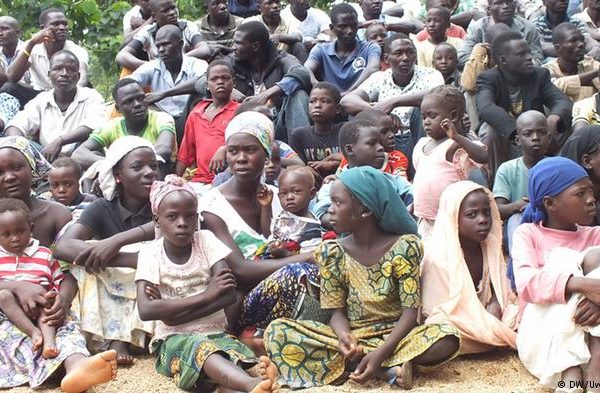A Don, Dr Rasheeda Liman of Ahmadu Bello University, Zaria, says girls and women in IDP camps in Nigeria are sexually exploited and harassed in return for food and relief materials.
Liman made the allegation in a statement by signed Victor Osae, Information and Communication Officer of Women Connect Initiative, an NGO, made available to the News Agency of Nigeria in Zaria on Friday.
According to him, the don, who is the Principal Investigator of Centre of Excellence on Development Communication and Head of Department, ABU Theatre and Performing Arts, made this known this at one-day Girls’ Summit held in Zaria.
The summit themed: “See the Need, Meet the Need”, was organised by Women Connect Initiativeto commemorate the International Day of the Girl-Child.
Osae said the don observed that women and girls in IDP camps in the country were increasingly falling prey to exploitation and sexual harassment in return for aid, particularly food.
She said: “Unscrupulous government workers and local charity organisations sometimes abuse their power and exploit the vulnerable position of young girls who have to rely on aid agencies for help.
“Violence against them, especially rape, adds to the need for urgent intervention.
“In addition to rape, girls as young as 9 years’ old are also subjected to forced prostitution within these camps.
“Borno IDPs are hot spots for crimes against girls and women who depend on charity for survival.
“In addition to psychological trauma from loss of families, friends and property, displaced girls and women are faced with security challenges.”
Liman observed that the inadequacy of security at the IDP camps opens them to attacks from rapists, armed robbers, military personnel and hooligans.
She said: “The issue of security and protection of, particularly women and children within these camps, should be a question of utmost priority for both government and non-governmental organizations.
“This should be done in conjunction with independent security experts both national and international.”
In her remarks, Hajiya Murjanatu Suleiman-Shika, the Convener of the Girls’ Summit and Director of Women Connect Initiative, said the rights of girls and women in the North had not been given the attention it deserves.
Suleiman-Shika said: “The rights of girls and women in Northern Nigeria had not been given the attention it deserves, considering the unfair opportunities that are available to female children compared with their male counterpart.
“The speaking space available to the girl-child in Northern Nigeria is still very limited, girls do not have the same opportunities as their male counterparts.
“What has happened from the efforts of several governments is to encourage girls to go to school but most of these girls abandon school due to marriage and those who manage to go through school only come out with certificates and nothing more.”
She said girls from Northern Nigeria did not have the early exposure that male children have, adding that the early exposure male children have helped them to explore a lot of things which later help them in life.
She said: “The girls here are secondary school girls from rural and urban communities and we have skills acquisition programmes which we run for them at no costs.
“This programme is put in place to facilitate girls on the need to acquire skills early in life that will make them self-sufficient and financially independent whilst contributing to enterprise development.”
On her part, Prof. Binta Abdulkarim, Director, Gender Policy Unit, ABU, Zaria, said the problems faced by female children could have been solved by putting good policies in place.
Abdulkarim said: “Giving handouts is not enough to address issues girls and women faced. There are policies but they are not working due to certain practices.
“But we believe that this can be changed by responsible government and people.”
Don decries sexual exploitation of IDPs for food, relief materials in camps
Previous ArticlePresidential asset recovery panel spreads dragnet abroad
Next Article Police nab 16 suspected kidnappers in Kogi


